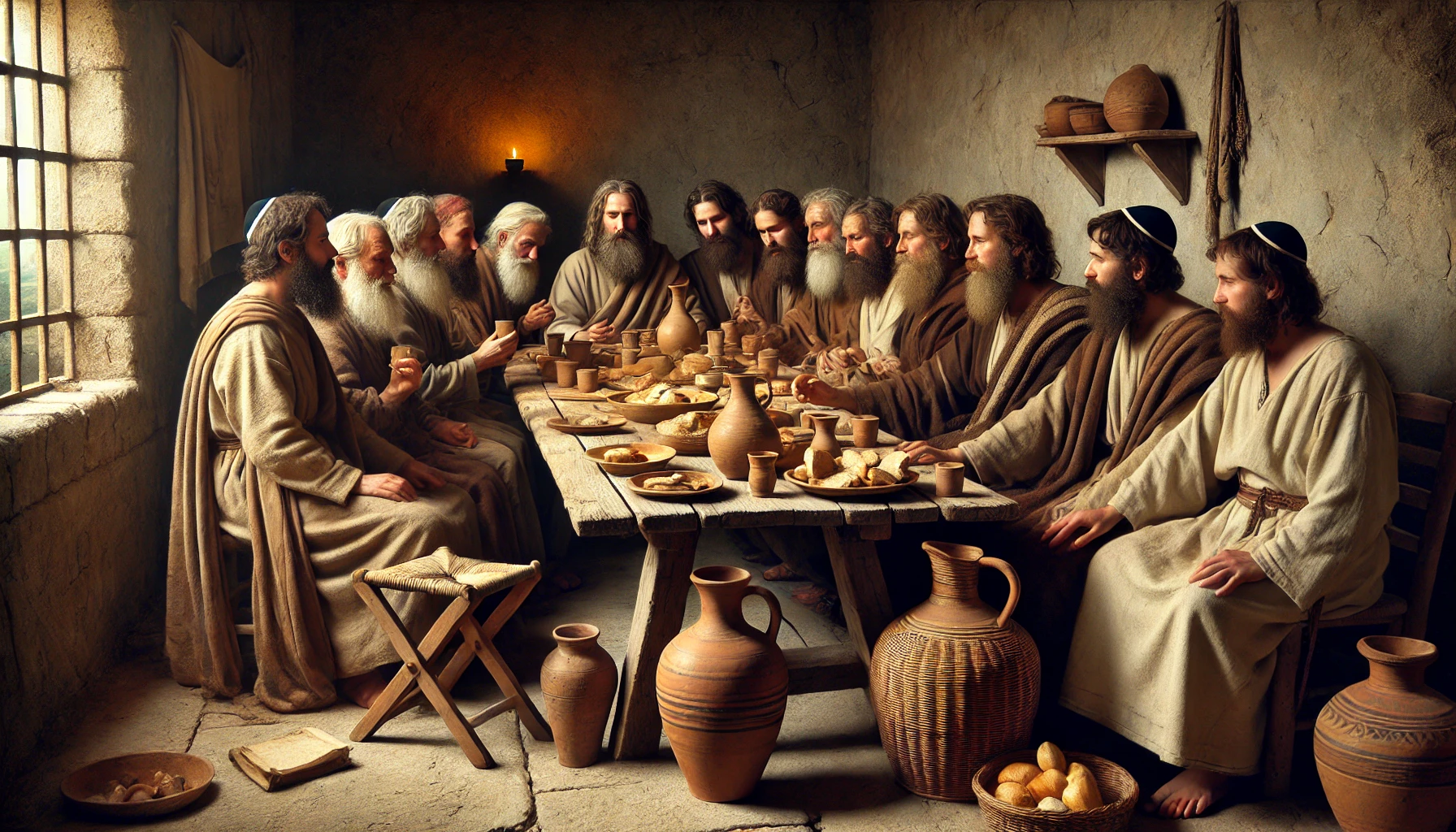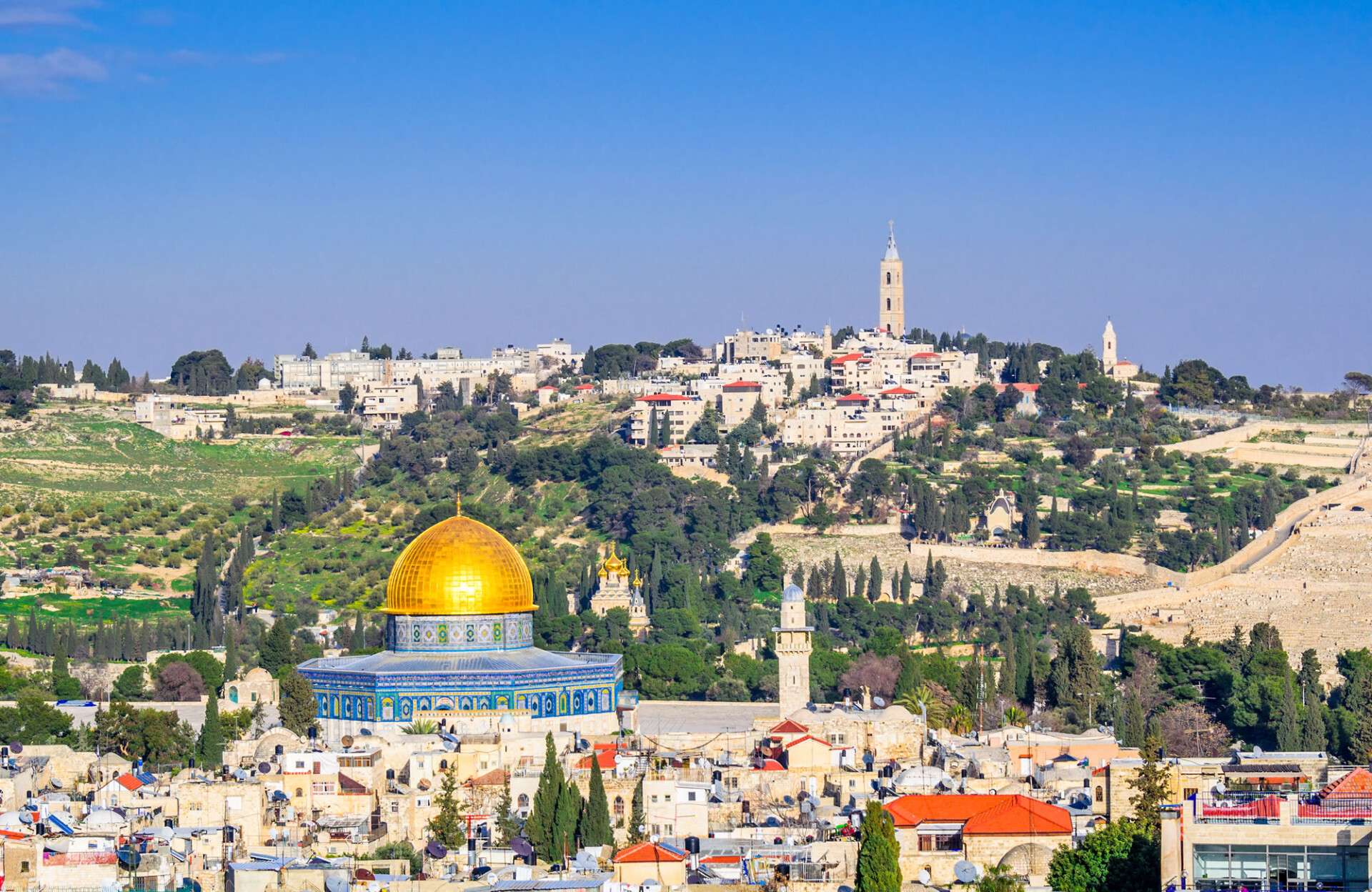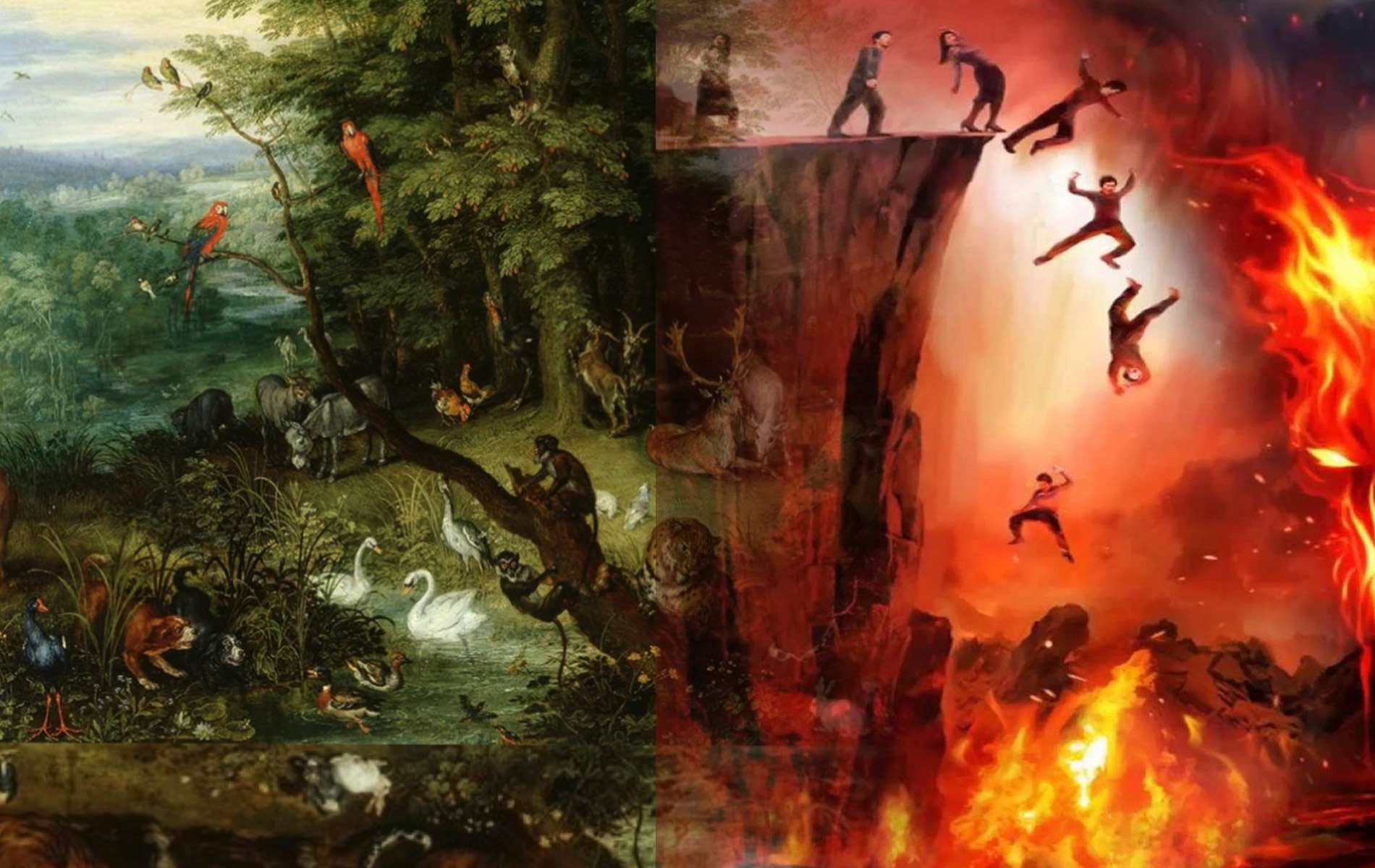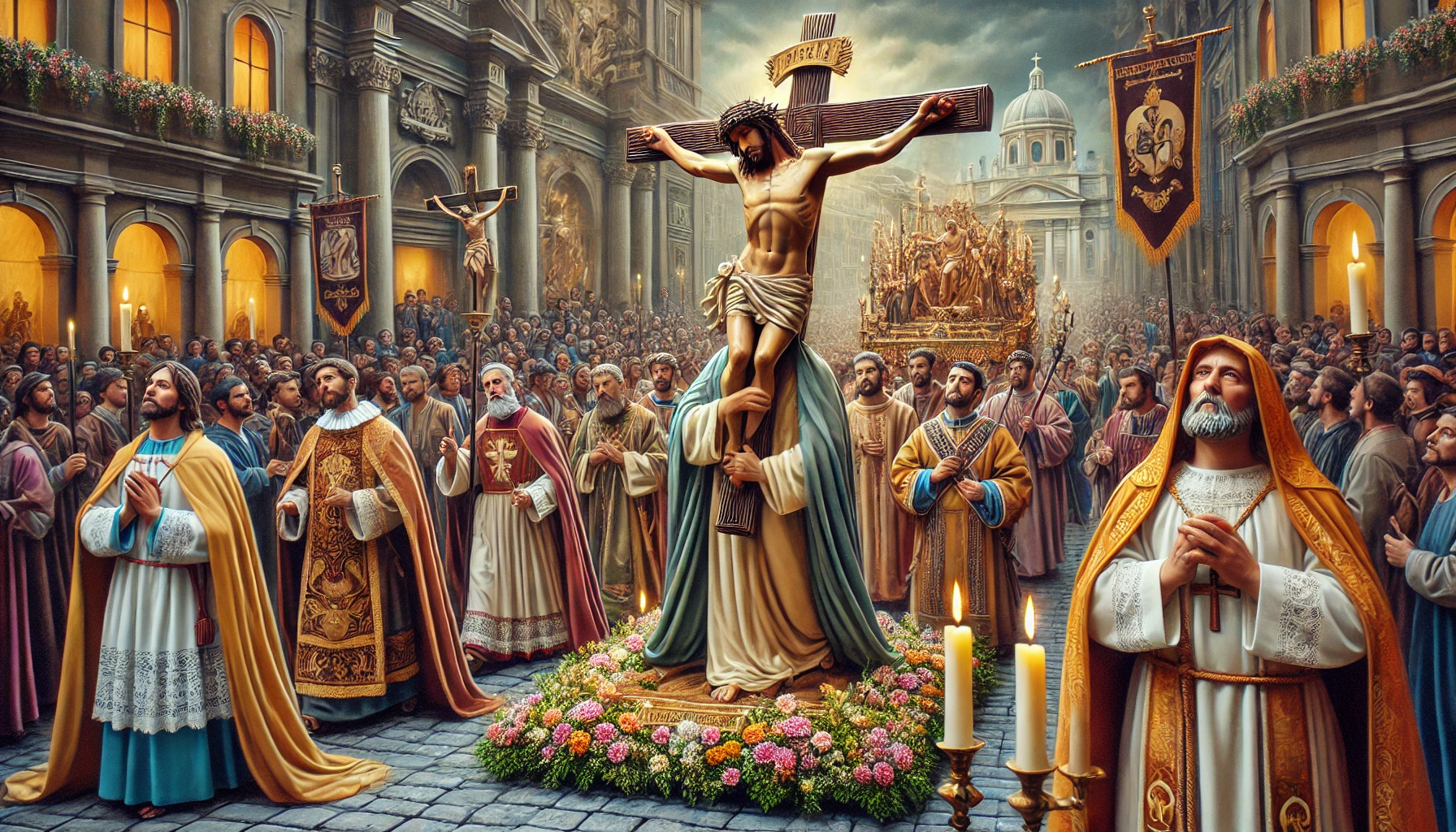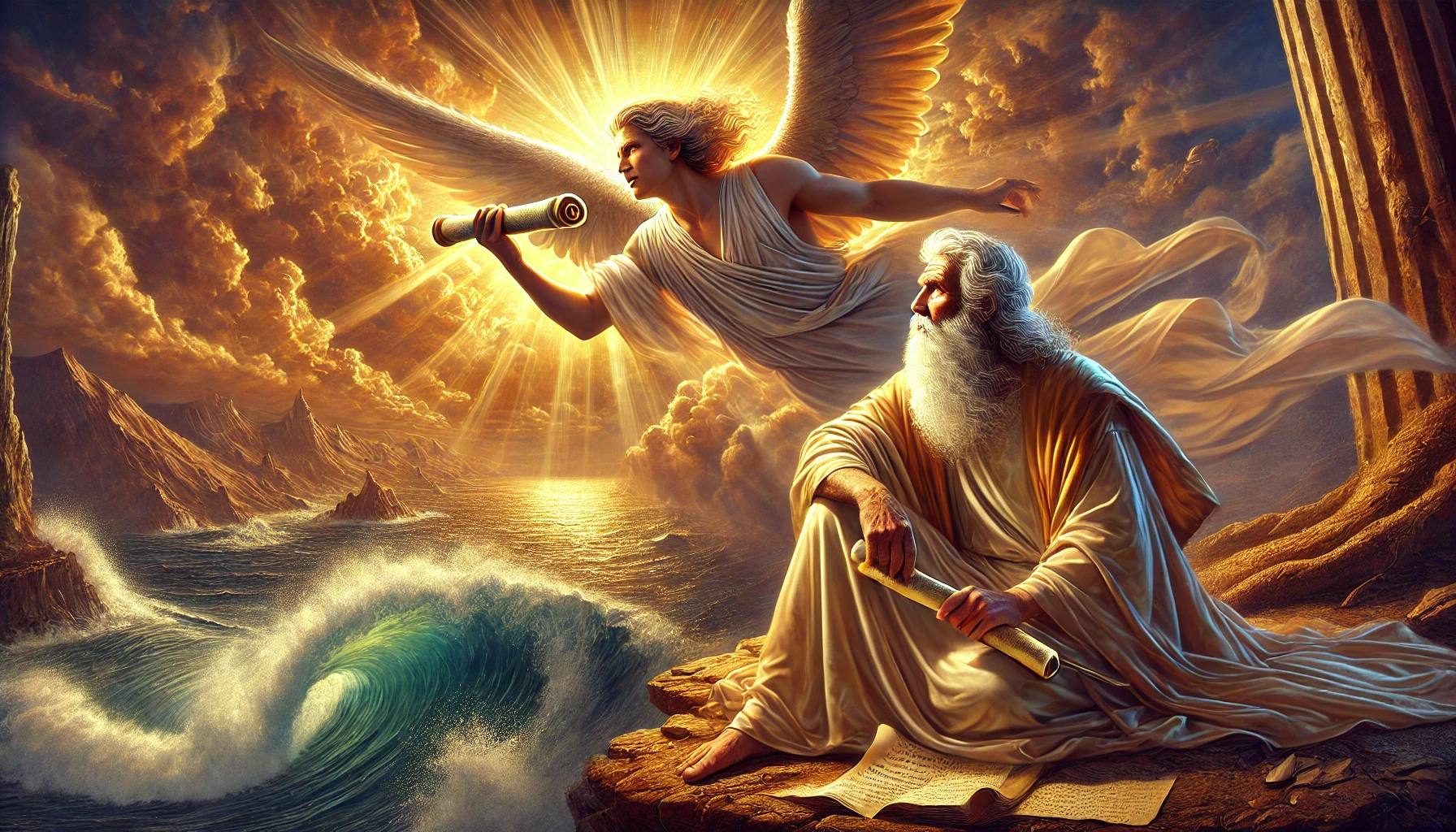For many, it seems inconceivable to imagine that someone within the Christian sphere would not feel a sense of nostalgia, pity, or anger over the suffering inflicted upon our Lord Jesus Christ by Roman soldiers. These dates are conducive to unleashing such emotions surrounding this subject. Many evangelical denominations also celebrate Holy Week with special services, particularly “Good Friday” and “Resurrection Sunday.” This celebration is considered by many as an opportune time to remember Jesus’ sacrifice and represents the Christian event that unites all who believe in the Son of God around the world.
We observe how television stations dedicate much of their programming to broadcasting films related to the “life, passion, and death of our Lord Jesus Christ,” which stirs a sense of spirituality in most of the faithful, moving even the hardest hearts. In the end, this festivity concludes with a celebration commemorating Jesus’ resurrection during “Resurrection Sunday.”
However, it is important to reflect on the truth behind this great “Christian movement.” One of the questions we must ask ourselves is: Should Christians celebrate Holy Week? And what is the connection between the Lord’s Supper, Passover, and this celebration? To answer these questions, let us turn to the Word of God and first examine the warning given in the book of Jeremiah.
“This is what the Lord says: ‘Do not learn the ways of the nations or be terrified by signs in the heavens, though the nations are terrified by them. For the practices of the peoples are worthless; they cut a tree out of the forest, and a craftsman shapes it with his chisel. They adorn it with silver and gold; they fasten it with hammer and nails so it will not totter.'” (Jeremiah 10:2-4).
The celebration of Holy Week is not endorsed by God, and, as we will see later, it also lacks validity from both biblical and historical perspectives. In this regard, the Catholic Church has set the precedent for altering and distorting God’s Word with a series of traditions that, far from honoring God, cynically disobey Him. Unfortunately, the evangelical Christian church follows in their footsteps, often unknowingly, and at times even denying it. This tradition, deeply rooted in Catholicism and among many evangelical Christians, highlights the lack of knowledge of these groups regarding the Word of God.
It is important to remember that Jesus never commanded the celebration of a particular week, not even from Friday to Sunday, nor to commemorate His resurrection on a specific date. In fact, our Lord Jesus Christ did not die on a Friday, nor did He rise on a Sunday, as will be demonstrated later. It is essential to approach this message with a heart willing to understand biblical truth—set aside what you have learned for a moment and allow the Spirit of God to teach you.
Passover Does Not Always Fall on the Same Day of the Week
It is important to clarify that Passover does not always coincide with a specific day of the week. According to the Jewish calendar, Passover may vary by day, although the date, the 14th of Nisan, remains constant. God established this date in the Jewish calendar, not the Gregorian calendar, for the celebration of Passover. Let us remember that it was God who determined this date—not the people of Israel nor the Catholic Church.
The current calendar, known as the Gregorian calendar, was established by Pope Gregory the Thirteenth in the sixteenth century with the purpose of ensuring that the “Christian Passover,” celebrated by Catholics, always coincided with Sunday as a way to preserve traditions of pagan origin.
The Gregorian calendar is the calendar system currently adopted officially in most countries. It was named after its promoter, Pope Gregory the Thirteenth, and replaced the Julian calendar in 1582, which had been introduced by Julius Caesar in 45 B.C. The Gregorian reform emerged as a response to a need raised at the Council of Trent: to adjust the calendar to eliminate the accumulated discrepancy since the Council of Nicaea in A.D. 325, when the astral moment for the celebration of Passover and, consequently, other movable religious feasts had been determined. The primary objective was to regularize the liturgical calendar, which required introducing certain corrections to the civil calendar. Essentially, the goal was to synchronize the civil calendar with the tropical year.
Catholicism developed its own calendar to align the “Christian Passover,” or more specifically, Catholic Passover, with the solar cycle instead of the lunisolar cycle on which the Jewish calendar is based. The fundamental goal was to ensure that the celebration of the “Resurrection Passover” would occur on a Sunday, regardless of the specific date God had established. According to God’s calendar, or the Jewish calendar, the 14th of Nisan was the day when all the people of Israel were to observe Passover. However, at the beginning of the fourth century, considerable confusion existed within Catholicism about when the “Resurrection Passover”—which commemorates Jesus’ resurrection rather than the day of His sacrifice—should be celebrated. Several schools of thought emerged, each with different calculations. At the Council of Arles in 314, it was decreed that all Christendom should celebrate Passover on the same day, and this date would be determined by the Pope. Each year, the reigning Pope would set the date and send epistles with instructions to all the churches in the Catholic world.
However, not all congregations accepted these instructions, making further corrections necessary. At the Council of Nicaea in 325, a solution was finally reached. This council established specific norms for the celebration of the Resurrection Passover:
- Passover must be celebrated on a Sunday.
- It must never coincide with the Jewish Passover, which was celebrated on a fixed date regardless of the day of the week. This was intended to avoid parallels or confusion between the two religions.
- Catholic Christians must never celebrate Passover twice in the same year.
This decree demonstrates how Catholicism openly contradicted the date God had established for the Passover feast and, in particular, avoided commemorating the death of Jesus Christ, which was His explicit command. Instead, the celebration of His resurrection—which did not occur on a Sunday but was still established as such—was promoted. In this way, the Catholic Church rejected observing Passover on the date established by God, favoring a date adapted to the solar cycle and disobeying the fundamental ordinance set by Jesus Christ.
The so-called “Catholic or Resurrection Passover” represents, in reality, a clear and manifest attitude of disobedience to God’s commandments, which has been imitated by many evangelical communities of different denominations. What is most concerning is that many evangelical Christians are unaware of the true purpose of Passover but consider the celebration of what they call the Lord’s Supper to be of great importance. They view it as a farewell meal and a reminder of His sacrifice. They have yet to associate that the Passover observed by the disciples and the ceremony celebrated by most Christian denominations is the same Passover ceremony that Jews observed for centuries and which Jesus modified when He gathered with His disciples to share His last meal with them.
The Importance of Passover Goes Beyond the Jewish Context
Passover was not merely a religious festival for the Israelites; it represented a date of profound importance for the entire nation of Israel in every respect. For Jesus, it also held a unique and historical value, as it was the moment when He would sacrifice Himself to free humanity from the consequences of sin. “As you know, the Passover is two days away—and the Son of Man will be handed over to be crucified.” (Matthew 26:2). Thus, His sacrifice acquires a special significance in this celebration, as Jesus Christ became the Lamb of God, the perfect sacrifice to atone for the sins of the world. “Look, the Lamb of God, who takes away the sin of the world!” (John 1:29). His death took place precisely during Passover.
Through His sacrifice, Jesus Christ freed us from the slavery of sin that oppressed us. Just as the Israelites were slaves in Egypt, we were slaves to sin, and a Savior was necessary to rescue us from the oppression of the “prince of this world.” “Then you will know the truth, and the truth will set you free.” They answered him, ‘We are Abraham’s descendants and have never been slaves of anyone. How can you say that we shall be set free?’ Jesus replied, ‘Very truly I tell you, everyone who sins is a slave to sin.'” (John 8:32-34).
Our freedom and salvation came through the blood that Jesus Christ shed on the cross at Calvary. He was the sacrificial Lamb who, by giving His life, offered eternal life to those who believe and follow His commandments.
The freedom we enjoy today is an unmerited gift from God, and if we live under His sovereignty and away from sin, we will continue to be truly free. However, anyone who sins remains a slave to sin. “It is for freedom that Christ has set us free. Stand firm, then, and do not let yourselves be burdened again by a yoke of slavery.” (Galatians 5:1). Through His sacrifice, Christ replaced the lamb that was sacrificed each Passover, demonstrating that His sacrifice was no mere coincidence but an act of divine purpose. His death had the clear intent of ending the sacrifices and offerings of the Mosaic Law since the blood of bulls and goats could not remove the people’s sin, and a superior sacrifice was necessary.
The only sacrifice acceptable to God was the precious blood of His only begotten Son. “So Christ was sacrificed once to take away the sins of many; and he will appear a second time, not to bear sin, but to bring salvation to those who are waiting for him.” (Hebrews 9:28). Passover was the most solemn feast in the nation of Israel, and no one who was unclean could participate in it; moreover, failing to observe it was forbidden under penalty of death. “But if anyone who is clean and not on a journey fails to celebrate the Passover, they must be cut off from their people for not presenting the Lord’s offering at the appointed time. They will bear the consequences of their sin.” (Numbers 9:12-14).
Passover represents the liberation of the people of Israel from slavery in Egypt. Similarly, Jesus Christ offered Himself as a pleasing offering before God to give us freedom from sin and its consequence—eternal death. Thus, the sacrifices of lambs and goats were valid only until the death of our Lord Jesus Christ. After His sacrifice, there was no longer any need to shed the blood of animals; although the people of Israel continued practicing sacrifices for a time, this custom eventually disappeared. However, two thousand years later, there are some groups advocating for the reconstruction of a third temple in Jerusalem, which they claim will allow the Jews to reconcile with their Creator through animal sacrifices. While this desire among some Jews and certain Christians may be great, such efforts are futile.
If you would like to learn more about this specific topic, I invite you to listen to our study titled: Will a Third Temple Be Built in Jerusalem?
The writer of the book of Hebrews explains that the ordinances and rituals performed under the Law had their purpose in the past but were abolished with the coming of Jesus. “They are only a matter of food and drink and various ceremonial washings—external regulations applying until the time of the new order. But when Christ came as high priest of the good things that are now already here, he went through the greater and more perfect tabernacle that is not made with human hands, that is to say, is not a part of this creation. He did not enter by means of the blood of goats and calves; but he entered the Most Holy Place once for all by his own blood, thus obtaining eternal redemption. The blood of goats and bulls and the ashes of a heifer sprinkled on those who are ceremonially unclean sanctify them so that they are outwardly clean. How much more, then, will the blood of Christ, who through the eternal Spirit offered himself unblemished to God, cleanse our consciences from acts that lead to death, so that we may serve the living God!” (Hebrews 9:10-14).
Passover is the only celebration that changed in its form. Now, instead of sacrificing animals and shedding their blood on the altar, Jesus taught us to “eat His flesh and drink His blood,” clearly referring to the celebration of Passover. Through His death, Jesus modified the way to observe this celebration, but in no way did He abolish it. This commemoration is not an optional act nor a practice tied to a particular denomination; Jesus did not change the date or the periodicity of this celebration—only its elements. “For my flesh is real food, and my blood is real drink. Whoever eats my flesh and drinks my blood remains in me, and I in them.” (John 6:55-56).
The Day of Preparation Is the Key to Understanding Jesus’ Sacrifice
Traditionally, it is taught that Jesus died on Friday afternoon and rose early Sunday morning. However, this belief is incorrect. Jesus Christ died during the first day of the Feast of Unleavened Bread, known as the Day of Preparation. The Passover Meal, or Seder Pesach (Pesach in Hebrew means “Passover”), was observed on this day.
It was on this day that Jesus celebrated His last Passover, teaching His disciples how they were to commemorate it in the future. During that “Day of Preparation,” the final events in the life of our Lord took place. On this day, which began at six in the evening, what we now call the Lord’s Supper was established.
This supper was where Jesus shared the table with His disciples and gave them instructions on what they were to do from then on. Among His most significant actions was washing His disciples’ feet, an act of humility and service, as described in John 13:4-6: “so he got up from the meal, took off his outer clothing, and wrapped a towel around his waist. After that, he poured water into a basin and began to wash his disciples’ feet, drying them with the towel that was wrapped around him.”
He also foretold the betrayal that was about to come from one of His own, showing that He was fully aware of what awaited Him, as narrated in John 13:21-26.
Afterward, Jesus went to the Garden of Gethsemane to pray and prepare Himself for the suffering He would face. There, in a moment of deep anguish and surrender to the Father’s will, He sought refuge in prayer. As described in Luke 22:39-46, Luke adds that Jesus prayed with such intensity that “His sweat was like drops of blood falling to the ground,” a detail reflecting the great emotional and spiritual tension of that moment.
It was in this very place that Jesus was arrested. During His capture, Peter attempted to defend Him, but Jesus stopped him, demonstrating His complete acceptance of the divine purpose. This pivotal moment is narrated in John 18:10-11: “Then Simon Peter, who had a sword, drew it and struck the high priest’s servant, cutting off his right ear. The servant’s name was Malchus. Jesus commanded Peter, ‘Put your sword away! Shall I not drink the cup the Father has given me?'”
Following His arrest, Jesus was taken first to the high priest and then to Pilate, the Roman governor, who ultimately handed Him over to be crucified. In His dialogue with Pilate, the challenge of understanding Jesus’ true identity as King and Savior became evident. All of this took place during the night and early morning of the Day of Preparation, leading to His judgment, torture, and delivery to the place of His crucifixion. Matthew 27:26-31 recounts how Jesus was scourged, mocked, and beaten by Roman soldiers, who placed a crown of thorns on His head and a scarlet robe on Him as a form of humiliation:
“Then he released Barabbas to them. But he had Jesus flogged and handed him over to be crucified. Then the governor’s soldiers took Jesus into the Praetorium and gathered the whole company of soldiers around him. They stripped him and put a scarlet robe on him, and then twisted together a crown of thorns and set it on his head. They put a staff in his right hand. Then they knelt in front of him and mocked him. ‘Hail, king of the Jews!’ they said.”
During the morning, around the third hour or sixth hour depending on the gospel account, which would be between 9:00 a.m. and noon on the Day of Preparation, Jesus was crucified by the Roman soldiers. John 19:17-18 describes this moment: “Carrying his own cross, he went out to the place of the Skull (which in Aramaic is called Golgotha). There they crucified him, and with him two others—one on each side and Jesus in the middle.”
All these events occurred during the “Day of Preparation,” in fulfillment of prophecy and as part of the Passover sacrifice. As detailed in John 19:31: “Now it was the day of Preparation, and the next day was to be a special Sabbath. Because the Jewish leaders did not want the bodies left on the crosses during the Sabbath, they asked Pilate to have the legs broken and the bodies taken down.”
The last 24 hours of Jesus Christ’s life were the most difficult, as they were the prelude to His sacrifice. Before that day ended, Jesus died on the cross precisely on the day known as the “Day of Preparation,” when the Passover Lamb was sacrificed, the 14th of Nisan. This demonstrates that His death during the Day of Preparation was planned and had to occur in the manner it did, because if Satan and his rulers had understood God’s plan, they would not have crucified Him, as stated in 1 Corinthians 2:8: “None of the rulers of this age understood it, for if they had, they would not have crucified the Lord of glory.”
Failing to understand God’s plan for us as Christians brings defeat and pain. This shows that if we do not know how God operates, we will simply be carried along by events without comprehending anything He does. The day and time of Jesus Christ’s death did not happen by chance; He had to replace the Passover lamb, as His blood, shed on the cross at Calvary, came to free us from the slavery of sin and its consequences.
For many at that time, as well as today, a feast continued to be celebrated that had lost its significance since no animal sacrifice can take the place of the Lamb of God. The Day of Preparation was crucial, as it marked the date of our liberation and redemption, which is why Christ wanted us to remember it.
In Jesus’ time, the Day of Preparation for Passover (14th of Nisan) was a pivotal day in Jewish traditions, as it marked the necessary preparations for the celebration of Passover, which began that evening and continued for the next seven days during the Feast of Unleavened Bread.
On the afternoon of the 14th of Nisan, every Jewish family was required to bring a lamb to the Temple to be sacrificed. According to tradition, the lamb had to be a male without blemish, about one year old. The priests performed the sacrifice, sprinkling its blood on the altar. This act commemorated the first Passover in Egypt, when the lamb’s blood was applied to the doorframes to protect the Israelites from the angel of death.
Once the lamb was sacrificed, it was taken back home to be roasted. It could not be boiled or prepared in any other way, only roasted over fire. Along with the lamb, unleavened bread (matzah) and bitter herbs were prepared. The unleavened bread symbolized purity and the absence of corruption, without yeast or “sin,” while the bitter herbs reminded them of the bitterness of slavery in Egypt.
Since Passover and the Feast of Unleavened Bread lasted seven days, Jewish families were required to remove all yeast from their homes before the feast began. This involved thoroughly cleaning the house to ensure no leavened products remained. This act symbolized purity and separation from any “impurity” or sin. In the New Testament, Jesus uses yeast as a symbol of the corrupting influences of religious leaders. In Matthew 16:6, He warns His disciples: “Be careful,” Jesus said to them. “Be on your guard against the yeast of the Pharisees and Sadducees.” In this context, “yeast” represents the teachings and hypocrisy of these groups, which distorted the true intent of the Law.
During the evening, which in the Jewish calendar was already considered the beginning of the 15th of Nisan, families gathered to celebrate the Passover meal or Seder. In this meal, the story of the exodus from Egypt was narrated, following a ritual with questions, answers, and symbols. The lamb, unleavened bread, and bitter herbs were consumed in a solemn atmosphere filled with gratitude.
Passover was a time for spiritual reflection and remembering God’s faithfulness and His deliverance of the people of Israel. Families devoted time to prayer, and Torah passages recounting the exodus and God’s salvation were read or recited. In the New Testament, “leaving Egypt” takes on symbolic meaning, representing deliverance from sin and spiritual slavery for believers. Just as the exodus of the Israelites was a departure from physical oppression and slavery in Egypt to freedom in the Promised Land, in the New Testament this experience is used as a metaphor for the redemption and spiritual freedom offered by Jesus Christ.
Just as the Israelites were rescued from oppression in Egypt, believers in Christ are freed from the power of sin. Paul explains this deliverance in Romans 6:17-18, referring to conversion in Christ as an “exodus” from slavery to sin: “But thanks be to God that, though you used to be slaves to sin, you have come to obey from your heart the pattern of teaching that has now claimed your allegiance. You have been set free from sin and have become slaves to righteousness.”
Passover, or Pesach, was one of the major or solemn feasts within Jewish festivals. An important fact is that these festivals were also called “Sabbaths,” or “days of rest,” or solemn Sabbaths, so Jesus Christ was buried on the eve of “a special Sabbath,” as stated in John 19:31: “…because the next day was to be a special Sabbath.” However, the feast did not end on the 14th of Nisan; it continued the following day, the 15th of Nisan, as established by Jewish custom: “On the fourteenth day of the first month the Lord’s Passover is to be held. On the fifteenth day of this month there is to be a festival; for seven days eat bread made without yeast. On the first day hold a sacred assembly and do no regular work.” (Numbers 28:16-18).
Passover was also known as the “Feast of Unleavened Bread,” and the day before its celebration was called the “Day of Preparation.” This celebration lasted a week and can be summarized as follows:
- Day of Preparation (14th of Nisan): The day the Passover lamb was sacrificed.
- Passover Dinner (15th of Nisan): The first dinner of the festival.
- First Day of the Feast of Unleavened Bread (16th of Nisan): A special day of rest.
- The following five days: Unleavened bread and bitter herbs were consumed.
- Seventh Day of the Feast of Unleavened Bread (21st of Nisan): A holy convocation and another day of rest.
Jesus Did Not Partake of Passover… He Was the Passover
On the “Day of Preparation,” the Passover lamb was sacrificed for the following day’s dinner. “On the first day of the Festival of Unleavened Bread, when it was customary to sacrifice the Passover lamb, Jesus’ disciples asked him, ‘Where do you want us to go and make preparations for you to eat the Passover?'” (Mark 14:12).
It is important to note that Jesus never partook of the Passover that His disciples prepared because Jesus Himself was the Passover to be sacrificed. New Testament Christians celebrated Passover as Jesus taught them, though some did not fully understand its meaning at the time. That is why Paul reminded them to approach God with a pure heart and a full understanding of its significance: “Don’t you know that a little yeast leavens the whole batch of dough? Get rid of the old yeast, so that you may be a new unleavened batch—as you really are. For Christ, our Passover lamb, has been sacrificed. Therefore, let us keep the Festival, not with the old bread leavened with malice and wickedness, but with the unleavened bread of sincerity and truth.” (1 Corinthians 5:6-8).
Paul clearly states that the Passover, which is Christ, has already been sacrificed for us, and that we should celebrate it without malice or wickedness. Thus, Passover not only symbolizes a historical event of liberation for Israel but, in Christ, represents the ultimate redemption from sin and victory over death for all humanity. The disciples not only celebrated Passover on the correct date but also used the elements of bread and wine to observe it.
Paul explicitly affirms that Jesus was the Passover, the Lamb sacrificed during that celebration. The Last Supper, also known as “the Lord’s Supper,” was actually the last Passover under the Law that the disciples would celebrate in that manner, as the ceremony would use new elements for its observance: bread and wine. “This is the bread that came down from heaven. Your ancestors ate manna and died, but whoever feeds on this bread will live forever. I am the living bread that came down from heaven. Whoever eats this bread will live forever. This bread is my flesh, which I will give for the life of the world.’ Then the Jews began to argue sharply among themselves, ‘How can this man give us his flesh to eat?’ Jesus said to them, ‘Very truly I tell you, unless you eat the flesh of the Son of Man and drink his blood, you have no life in you. Whoever eats my flesh and drinks my blood has eternal life, and I will raise them up at the last day.” (John 6:50-54).
It is crucial to understand the true meaning of “the new Passover,” as Jesus established this celebration in place of the old manner, which involved sacrificing a lamb. Being the commemorative date of Jesus’ sacrifice, it was established as the new Passover or what we now know as the Lord’s Supper. Paul understood this and declared that Jesus was our Passover, which is why he never stopped celebrating it. However, there is only one biblical reference explicitly mentioning this gathering as the Lord’s Supper, although in reality, they were celebrating the New Passover. 1 Corinthians 11:20-22 states: “So then, when you come together, it is not the Lord’s Supper you eat, for when you are eating, some of you go ahead with your own private suppers. As a result, one person remains hungry and another gets drunk. Don’t you have homes to eat and drink in? Or do you despise the church of God by humiliating those who have nothing? What shall I say to you? Shall I praise you? Certainly not in this matter!”
Paul was reprimanding the Corinthians because they continued to celebrate Passover in the old way—preparing it as they always had, sacrificing a lamb, eating it at the meal, and drinking wine. They still did not understand the true meaning of the new Passover. In reality, when Paul referred to the Lord’s Supper, he was referencing the New Passover, trying to distinguish it from the celebration they had observed for centuries, as there was a marked difference.
The 14th of Nisan marks the beginning of Passover, and we should celebrate it until the Lord Jesus Christ returns, not on arbitrary dates. To determine this exact date, one only needs to consult a Hebrew-Gregorian calendar: “For I tell you, I will not eat it again until it finds fulfillment in the kingdom of God. After taking the cup, he gave thanks and said, ‘Take this and divide it among you. For I tell you I will not drink again from the fruit of the vine until the kingdom of God comes.’ And he took bread, gave thanks and broke it, and gave it to them, saying, ‘This is my body given for you; do this in remembrance of me.’ In the same way, after the supper he took the cup, saying, ‘This cup is the new covenant in my blood, which is poured out for you.'” (Luke 22:16-20).
On What Day Did Jesus Die and Rise?
After Jesus’ death, the women came to His tomb early on the first day of the week (Sunday), before dawn. This suggests they waited until the “special Sabbath” had ended, which spanned several special days. They wanted to properly prepare Jesus’ body, as they had not had enough time to do so before His burial: “Early on the first day of the week, while it was still dark, Mary Magdalene went to the tomb and saw that the stone had been removed from the entrance.” (John 20:1).
Piecing together these details, we can conclude that the Jews observed a “long weekend” of rest, resting on the 15th, 16th, and 17th of Nisan, which included a weekly Sabbath. This confirms what Jesus prophesied about His time in the tomb: “For as Jonah was three days and three nights in the belly of a huge fish, so the Son of Man will be three days and three nights in the heart of the earth.” (Matthew 12:40).
This fulfillment of three days and three nights reaffirms the prophesied time Jesus would remain in the tomb before His resurrection, thus accomplishing divine purpose and Scripture. It is still difficult to understand how the vast majority of evangelical Christians doubt that Jesus was in the tomb for three days and three nights when He clearly stated it Himself. For many, Jesus died on a Friday and rose on Sunday, without considering that from Friday evening to Sunday morning there are only 36 hours, not the 72 hours Jesus said He would remain. By applying basic math, we see that if He had been buried on Friday at 6 p.m., His resurrection would have occurred on Monday at 6 p.m. (72 hours later), and the women would have arrived at the tomb early Tuesday morning, which does not align with the biblical accounts.
So, Jesus did not die on a Friday but on a Wednesday, and He did not rise on Sunday morning but on Saturday evening, around 6 p.m. If we trust Jesus’ words, we can assert that He was in the tomb for 72 hours. Jesus emphasized that He would be “in the heart of the earth” for the same duration Jonah was in the belly of the fish—three days and three nights, no more, no less. Days began at sunset, not at midnight. The night was divided into four watches of three hours each, starting at 6:00 p.m. and ending at 6:00 a.m., while the day was divided into 12 hours that varied in length depending on the time of year.
Why Is This Important to Emphasize?
Because this is where the confusion of millions of people lies. Many doubt that Jesus spent the full period in the tomb and assume the resurrection happened on Sunday morning, feeding one of the most deeply rooted traditions in modern Christianity. Others dismiss its importance because they do not understand its significance, much like the Corinthians.
How Should Christians Celebrate the New Passover?
Today, this celebration is often observed with grape juice and leavened bread, on any day and time the pastor decides, in a manner similar to how the Popes established the date for Passover in past centuries. Even the frequency of the Lord’s Supper varies among denominations. Some churches celebrate it weekly, others monthly, and some on special occasions like Good Friday or Easter.
In many churches, unleavened bread is used; others use leavened bread. Some use wine, while others use grape juice. Certain denominations, such as evangelical churches, prefer grape juice over wine. However, the command is clear: we must use unleavened bread and wine, and observe it on the day of Passover, or the 15th of Nisan.
Holy Week is a religious tradition that we evangelical Christians should not observe. Instead, we must begin celebrating the New Passover as Jesus instituted it and as Scripture clearly commands us to keep it. However, many Christians interpret this practice as a form of Judaizing, not realizing that to receive the promises, as Gentiles, God has grafted us into the olive tree, which is Israel.
Although the promises were made exclusively to the people of Israel, we, as Gentiles, have been reached by God’s mercy. Therefore, we must keep Jesus’ ordinances, not the Law of Moses: “know that a person is not justified by the works of the law, but by faith in Jesus Christ. So we, too, have put our faith in Christ Jesus that we may be justified by faith in Christ and not by the works of the law, because by the works of the law no one will be justified.” (Galatians 2:16).
Even though we were not born of Israelite parents, by believing in the only begotten Son of God, we are adopted into the spiritual family of Israel. Through faith, we have been “grafted” into the true olive tree, as mentioned in Romans 11:11-21:
“Again I ask: Did they stumble so as to fall beyond recovery? Not at all! Rather, because of their transgression, salvation has come to the Gentiles to make Israel envious. But if their transgression means riches for the world, and their loss means riches for the Gentiles, how much greater riches will their full inclusion bring! I am talking to you Gentiles. Inasmuch as I am the apostle to the Gentiles, I take pride in my ministry in the hope that I may somehow arouse my own people to envy and save some of them. For if their rejection brought reconciliation to the world, what will their acceptance be but life from the dead? If the part of the dough offered as firstfruits is holy, then the whole batch is holy; if the root is holy, so are the branches. If some of the branches have been broken off, and you, though a wild olive shoot, have been grafted in among the others and now share in the nourishing sap from the olive root, do not consider yourself to be superior to those other branches. If you do, consider this: You do not support the root, but the root supports you. You will say then, ‘Branches were broken off so that I could be grafted in.’ Granted. But they were broken off because of unbelief, and you stand by faith. Do not be arrogant, but tremble. For if God did not spare the natural branches, he will not spare you either.”
The New Passover Is for the Church of Jesus Christ
When Jesus Christ said, “do this in remembrance of me,” many interpret it as “do it whenever you wish”; however, Jesus simply changed the elements of Passover, not its date. If He had wanted to change the date, He would have conducted the celebration on another day, but He chose the “Day of Preparation,” which was precisely part of Passover. This detail emphasizes that the two “new” elements for the “new Passover” are literally bread and wine. It is important to point this out, as some distort the Scriptures and attempt to give it a symbolic meaning that does not exist, claiming that the wine was not really wine but grape juice, arguing that “drinking wine is a sin.” However, throughout the Scriptures and in the Middle Eastern cultures, including Israel, the consumption of wine is an ancient tradition.
As confirmation of this, we find in Paul’s first epistle to Timothy the recommendation he gave to his disciple: “Stop drinking only water, and use a little wine because of your stomach and your frequent illnesses.” (1 Timothy 5:23).
The New Passover, then, is a solemn celebration that is not merely a symbolic act; it is a spiritual communion with Christ, who gave His life for humanity. Observing it properly helps us remember Jesus’ sacrifice and invites us to eat His flesh and drink His blood so that we may have eternal life. If we do not eat the bread and drink the wine, we cannot live eternally. It is that simple.
Numerous verses show, without a doubt, that wine was an essential part of the customs of the people of Israel. During Jesus’ time, wine was a fundamental beverage in Jewish culture and throughout the Mediterranean. It was a regular part of daily meals and also held a special place in celebrations and religious rituals, such as Passover. Wine was typically mixed with water to reduce its alcoholic strength and to purify water, which could contain impurities at that time.
This wine was not unfermented grape juice, as some might think today, but fermented wine with a lower alcohol content compared to modern wines. Fermentation made it safe to drink and preserved it for long periods. In fact, if it is not fermented, it cannot be called wine. On special and festive occasions, such as weddings and other important celebrations, the best wine was served, and as part of the customs, its quality and preparation were highly valued. This beverage was not only consumed daily but was also enjoyed in large quantities on special occasions, such as the wedding at Cana, where Jesus performed His first miracle by turning water into wine.
We should not be scandalized by the use of wine in the celebration of the Lord’s Supper or Passover, as even the Lord Jesus Christ appreciated wine: “The Son of Man came eating and drinking, and they say, ‘Here is a glutton and a drunkard, a friend of tax collectors and sinners.’ But wisdom is proved right by her deeds.” (Matthew 11:19).
I am not suggesting in any way that we become drunk, but rather that we use the elements Jesus commanded for this celebration. Otherwise, we would be in direct disobedience to His commandments. Although I personally do not like wine, during this ceremony, I must be obedient and partake of it, just as our Lord asked of us. Let us not be so strict or “spiritual” that we forget Jesus lived in our human reality and understood perfectly the difference between wine and simple grape juice.
Unleavened bread, also known as matzah in Hebrew, is flatbread made only with flour and water, without any leavening agents. In Jesus’ time, this bread was commonly consumed during Passover, in adherence to Jewish traditions commemorating the hurried exodus from Egypt. According to the biblical account, the Israelites had no time to allow their bread to ferment, and thus, unleavened bread became a symbol of purity and liberation.
This type of bread is thin and crisp, unlike fluffy bread. Its preparation is simple, and by omitting leaven, it also symbolizes the elimination of corruption or “sin” in the Jewish spiritual context. During Passover, unleavened bread was the only type permitted, and this custom was faithfully maintained.
Jesus used unleavened bread during the Last Passover, also referred to by most as the Lord’s Supper or Holy Communion, or, as the Catholic Church calls it, the Eucharist, where the bread symbolizes His body offered in sacrifice and the wine His blood.
It is time, brothers and sisters, to return to the simplicity of the gospel, following the example of Jesus Christ’s disciples. This means observing the New Passover, or the Lord’s Supper, on the date He determined, in accordance with His commandments. If we are not celebrating the New Passover as Jesus instituted it, it is time to begin, because “Jesus said to them, ‘Very truly I tell you, unless you eat the flesh of the Son of Man and drink his blood, you have no life in you.'” (John 6:53). Do you want eternal life? Then do what Jesus taught.
![]()

